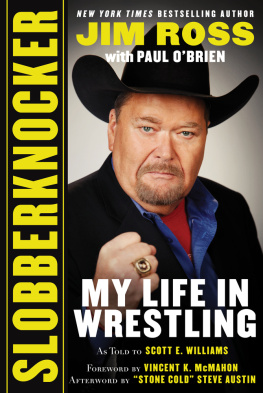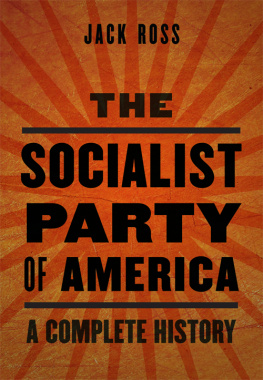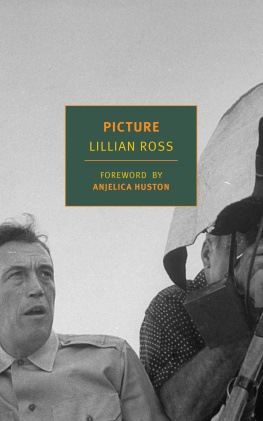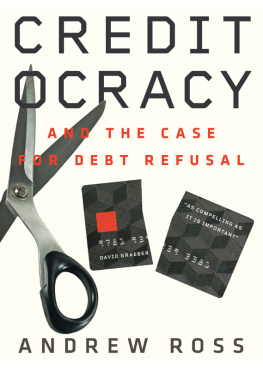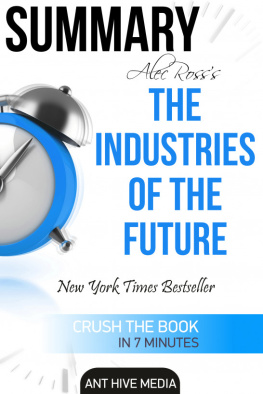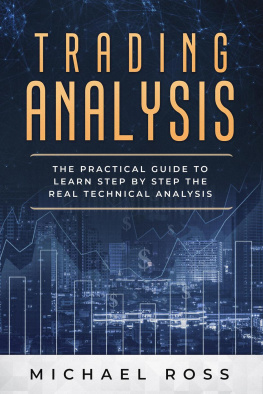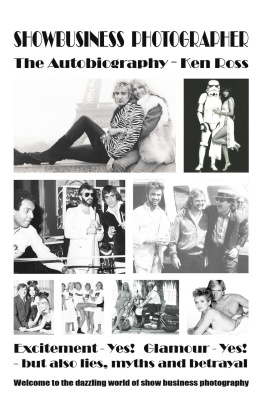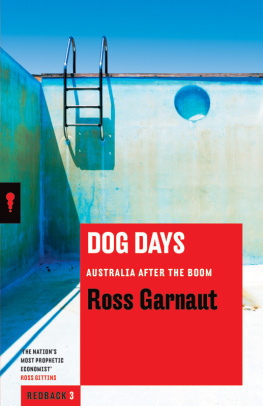Ross - The Industries of the Future
Here you can read online Ross - The Industries of the Future full text of the book (entire story) in english for free. Download pdf and epub, get meaning, cover and reviews about this ebook. year: 2016, publisher: Simon & Schuster, genre: History. Description of the work, (preface) as well as reviews are available. Best literature library LitArk.com created for fans of good reading and offers a wide selection of genres:
Romance novel
Science fiction
Adventure
Detective
Science
History
Home and family
Prose
Art
Politics
Computer
Non-fiction
Religion
Business
Children
Humor
Choose a favorite category and find really read worthwhile books. Enjoy immersion in the world of imagination, feel the emotions of the characters or learn something new for yourself, make an fascinating discovery.

The Industries of the Future: summary, description and annotation
We offer to read an annotation, description, summary or preface (depends on what the author of the book "The Industries of the Future" wrote himself). If you haven't found the necessary information about the book — write in the comments, we will try to find it.
Ross: author's other books
Who wrote The Industries of the Future? Find out the surname, the name of the author of the book and a list of all author's works by series.
The Industries of the Future — read online for free the complete book (whole text) full work
Below is the text of the book, divided by pages. System saving the place of the last page read, allows you to conveniently read the book "The Industries of the Future" online for free, without having to search again every time where you left off. Put a bookmark, and you can go to the page where you finished reading at any time.
Font size:
Interval:
Bookmark:
Thank you for downloading this Simon & Schuster eBook.
Join our mailing list and get updates on new releases, deals, bonus content and other great books from Simon & Schuster.
C LICK H ERE T O S IGN U P
or visit us online to sign up at
eBookNews.SimonandSchuster.com
We hope you enjoyed reading this Simon & Schuster eBook.
Join our mailing list and get updates on new releases, deals, bonus content and other great books from Simon & Schuster.
C LICK H ERE T O S IGN U P
or visit us online to sign up at
eBookNews.SimonandSchuster.com


Simon & Schuster
1230 Avenue of the Americas
New York, NY 10020
www.SimonandSchuster.com
Copyright 2016 by Alec Ross
All rights reserved, including the right to reproduce this book or portions thereof in any form whatsoever. For information, address Simon & Schuster Subsidiary Rights Department, 1230 Avenue of the Americas, New York, NY 10020.
First Simon & Schuster hardcover edition February 2016
SIMON & SCHUSTER and colophon are registered trademarks of Simon & Schuster, Inc.
For information about special discounts for bulk purchases, please contact Simon & Schuster Special Sales at 1-866-506-1949 or .
The Simon & Schuster Speakers Bureau can bring authors to your live event. For more information or to book an event, contact the Simon & Schuster Speakers Bureau at 1-866-248-3049 or visit our website at www.simonspeakers.com.
Interior design by Ruth Lee-Mui
Jacket design by Jason Heuer
Author photo Stephen Voss
Library of Congress Cataloging-in-Publication Data
Ross, Alec, 1971 author.
The industries of the future / Alec Ross.
pages cm
Includes bibliographical references and index.
1. Technological innovationsEconomic aspects. 2. IndustriesTechnological innovations. 3. Research, Industrial. I. Title.
HC79.T4R677 2016
338'.064dc23
2015028769
ISBN 978-1-4767-5365-2
ISBN 978-1-4767-5367-6 (ebook)
To my wife, Felicity, who keeps our family together and grounded when I am in the air, far away, far too often.
Welcome your new job takers and caregivers. The coming decade will see societies transform as humans learn to live alongside robots.
The last trillion-dollar industry was built on a code of 1s and 0s. The next will be built on our own genetic code.
Is there an algorithm for trust? New ways to exchange are forcing a rewrite of the compact between corporation, citizen, and government.
The world has left the Cold War behind only to enter into a Code War.
Land was the raw material of the agricultural age. Iron was the raw material of the industrial age. Data is the raw material of the information age.
World leaders take notice: the 21st century is a terrible time to be a control freak.
Adapt or perish, now as ever, is natures inexorable imperative.
H. G. Wells, A Short History of the World (1922)
Its 3:00 a.m., and Im mopping up whisky-smelling puke after a country music concert in Charleston, West Virginia.
Its the summer of 1991, just after my freshman year of college. While most of my friends from Northwestern University are off doing fancy internships at law firms, congressional offices, and investment banks in New York or Washington, I am one of six guys on the after-concert janitorial crew at the Charleston Civic Center, which seats 13,000 people.
Working the midnight shift is worse than jet lag. You have to decide if you want your work to be the beginning of your day or the end of your day. I would wake up at 10:00 p.m., eat breakfast, work from midnight to 8:00 a.m., and then go to bed around 3:00 p.m.
The other five guys on the crew were a tough bunch. They were good guys but beaten down. One carried a pint bottle of vodka in his back pocket, which was done by lunch at 3:00 a.m. A scraggly redhead from the hollows, the valleys that run between West Virginias hills, was sort of near my age. The others were in their 40s and 50s, at what should have been the peak of their wage-earning potential.
The way country music concerts work in West Virginia is people drink way too much. Our job was to clean up the result. The six of us canvassed the arena with enormous jugs of fluorescent-blue chemicals, which, when poured on the concrete floor, would just sizzle.
The last wave of innovation and globalization produced winners and losers. One group of winners were the investors, entrepreneurs, and high-skilled laborers that congregated around fast-growing markets and new inventions. Another class of winners were the more than 1 billion people who moved from poverty into the middle class in developing countries because their relatively low-cost labor was an advantage once their countries opened up and became part of a global economy. The losers were people who lived in high-cost labor markets like the United States and Europe whose skills could not keep up with the pace of technological change and globalizing markets. The guys I mopped with on the midnight shift were the losers in large part because the job they could have gotten in a coal mine years before had been replaced by a machine, and whatever job they could have gotten in a factory from the 1940s to the 1980s had moved to Mexico or India. For these men, being a midnight janitor was just not the summer job it was to me; it was one of the only options left.
Growing up, I thought that life in West Virginia was representative of life everywhere. You were doing your best to manage a slow descent. But the phenomenon I was witnessing in West Virginia really made sense to me only as I traveled the world and saw other regions rising as West Virginia was falling.
Twenty years after pushing a mop on the midnight shift, Ive now seen the world and been exposed to the highest levels of leadership in the biggest technology companies and governments around the world. Ive served as Secretary of State Hillary Clintons senior advisor for innovation, a position she created for me just as she became known as Madame Secretary. Before going to work for Clinton, I served as the convener for technology and media policy on the Obama campaign that beat her in the 2008 presidential primary and had spent eight years helping run a successful, technology-based social venture that I cofounded. My job at the State Department was to modernize the practice of diplomacy and bring new tools and approaches to addressing foreign policy challenges. Clinton recruited me to bring a little innovation mojo to the tradition-bound State Department. We had a lot of success, and at the time that she and I left in 2013, we were ranked as having the most innovation-friendly culture of any cabinet-level department in the federal government. We developed successful programs to address nasty challenges in places as varied as the Congo, Haiti, and the cartel-controlled border towns in northern Mexico. In the background of all this was the role I played building a bridge between Americas innovators and Americas diplomatic agenda.
In this time, I spent much of my life on the road. I saw a lot of the world before and after my time in government, but the 1,435 days I spent working for Hillary Clinton gave me a particularly intense, close-up view of the forces shaping the world. I traveled to dozens and dozens of countries, logging more than half a million miles, the equivalent of a round trip to the moon with a side trip to Australia.
I saw next-generation robotics in South Korea, banking tools being developed in parts of Africa where there were no banks, laser technology used to increase agricultural yields in New Zealand, and university students in Ukraine turning sign language into the spoken word.
Next pageFont size:
Interval:
Bookmark:
Similar books «The Industries of the Future»
Look at similar books to The Industries of the Future. We have selected literature similar in name and meaning in the hope of providing readers with more options to find new, interesting, not yet read works.
Discussion, reviews of the book The Industries of the Future and just readers' own opinions. Leave your comments, write what you think about the work, its meaning or the main characters. Specify what exactly you liked and what you didn't like, and why you think so.

